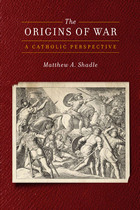
For over thirty years, David F. Kelly has worked with medical practitioners, students, families, and the sick and dying to confront the difficult and often painful issues that concern medical treatment at the end of life. In this short and practical book, Kelly shares his vast experience, providing a rich resource for thinking about life's most painful decisions.
Kelly outlines eight major issues regarding end-of-life care as seen through the lens of the Catholic medical ethics tradition. He looks at the distinction between ordinary and extraordinary means; the difference between killing and allowing to die; criteria of patient competence; what to do in the case of incompetent patients; the meaning and use of advance directives; the morality of hydration and nutrition; physician-assisted suicide and euthanasia; and medical futility. Kelly's analysis is sprinkled with significant legal decisions and, throughout, elaborations on how the Catholic medical ethics tradition—as well as teachings of bishops and popes—understands each issue. He provides a helpful glossary to supplement his introduction to the terminology used by philosophical health care ethics. Included in Kelly's discussion is his lucid description of why the Catholic tradition supports the discontinuation of medical care in the Terry Schiavo case. He also explores John Paul II's controversial papal allocution concerning hydration and nutrition for unconscious patients, arguing that the Catholic tradition does not require feeding the permanently unconscious.
Medical Care at the End of Life addresses the major issues that inform this last stage of caregiving. It offers a critical guide to understanding the medical ethics and relevant legal cases needed for clear thinking when individuals are faced with those crucial decisions.

Debate rages within the Catholic Church about the ethics of war and peace, but the simple question of why wars begin is too often neglected. Catholics’ assumptions about the causes of conflict are almost always drawn uncritically from international relations theory—a field dominated by liberalism, realism, and Marxism—which is not always consistent with Catholic theology.
In The Origins of War, Matthew A. Shadle examines several sources to better understand why war happens. His retrieval of biblical literature and the teachings of figures from church tradition sets the course for the book. Shadle then explores the growing awareness of historical consciousness within the Catholic tradition—the way beliefs and actions are shaped by time, place, and culture. He examines the work of contemporary Catholic thinkers like Pope John Paul II, Jacques Maritain, John Courtney Murray, Dorothy Day, Brian Hehir, and George Weigel. In the constructive part of the book, Shadle analyzes the movement within international relations theory known as constructivism—which proposes that war is largely governed by a set of socially constructed and cultural influences. Constructivism, Shadle claims, presents a way of interpreting international politics that is highly amenable to a Catholic worldview and can provide a new direction for the Christian vocation of peacemaking.
READERS
Browse our collection.
PUBLISHERS
See BiblioVault's publisher services.
STUDENT SERVICES
Files for college accessibility offices.
UChicago Accessibility Resources
home | accessibility | search | about | contact us
BiblioVault ® 2001 - 2024
The University of Chicago Press









